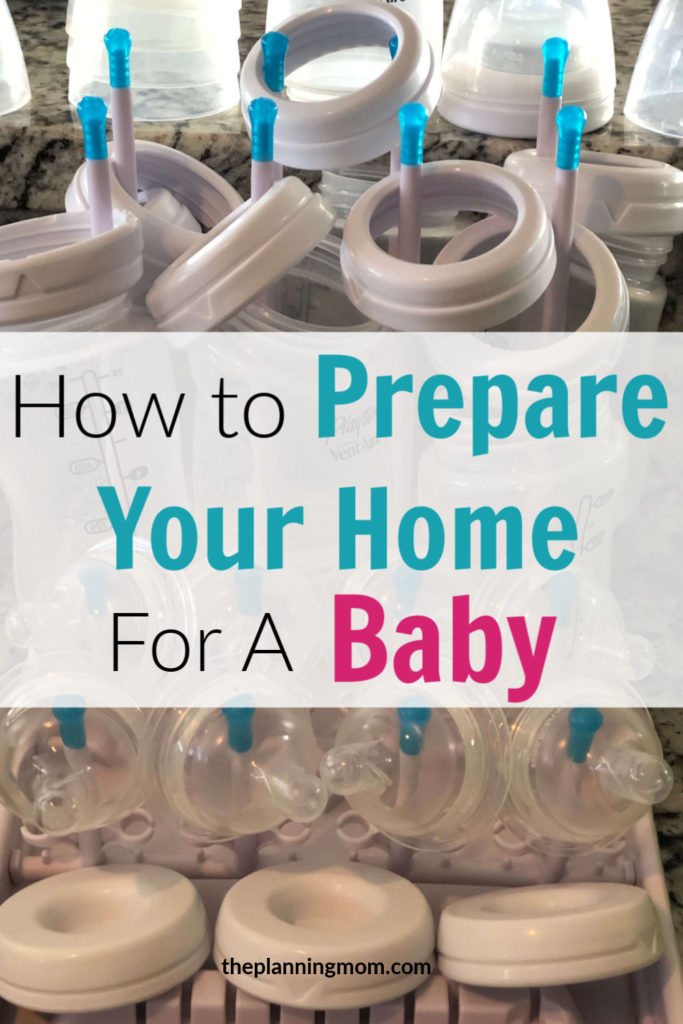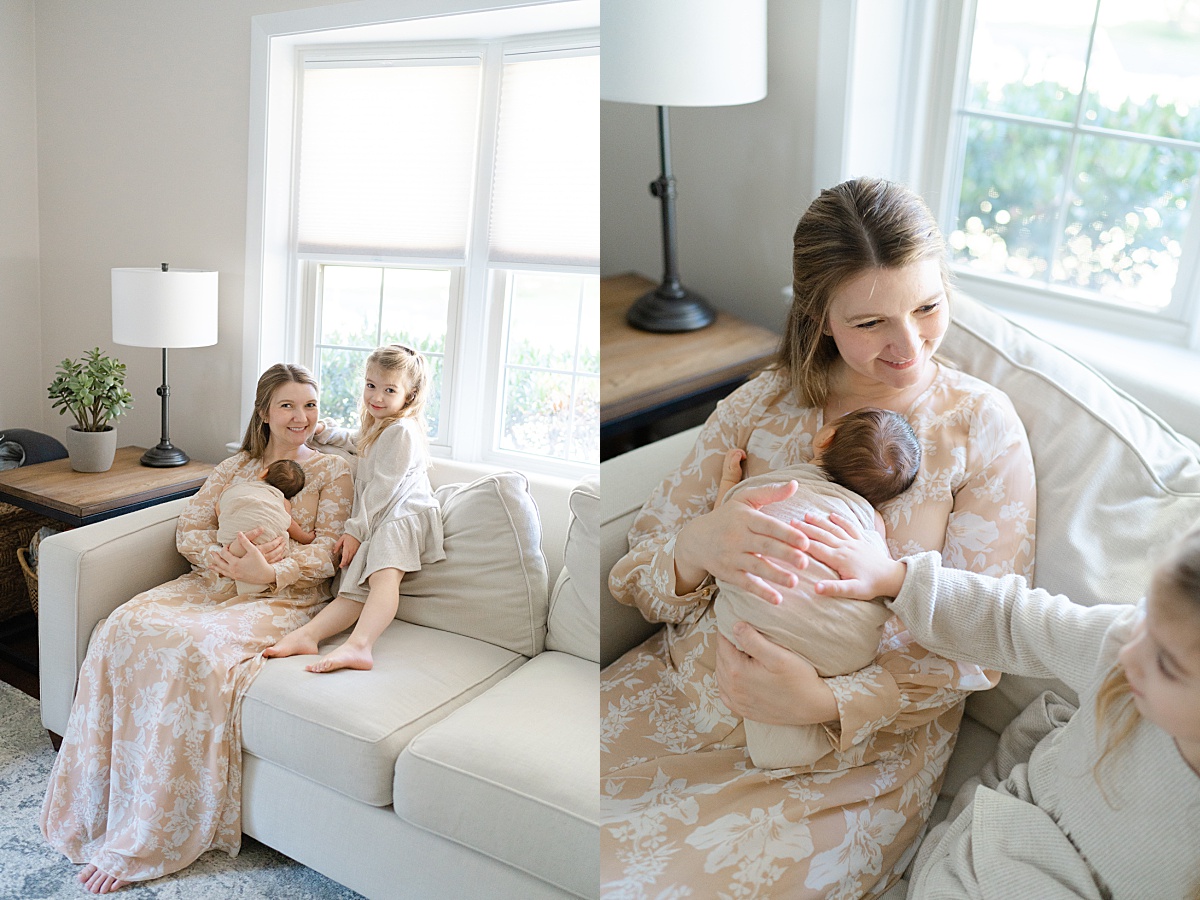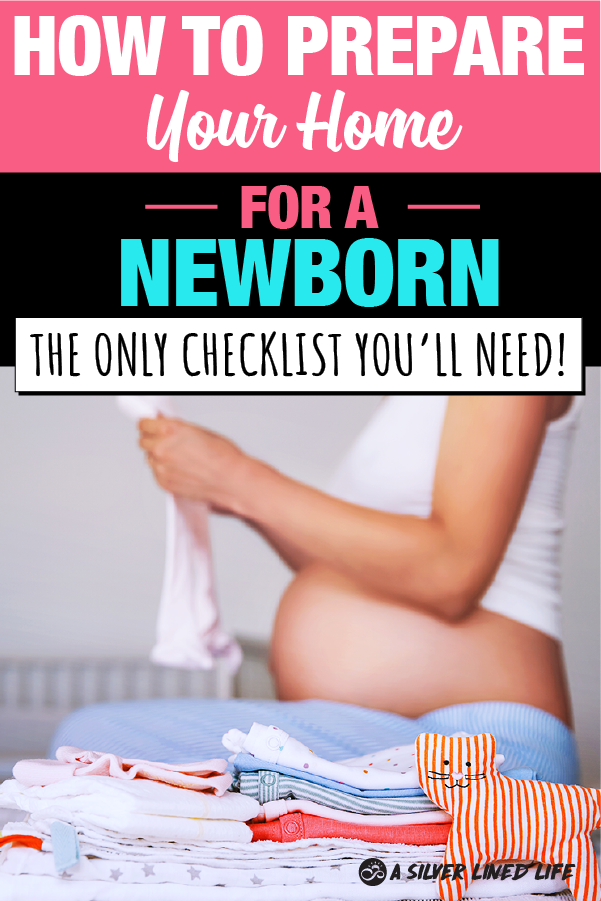Bringing a newborn home is a joyous yet challenging experience. It requires careful planning and preparation.
Welcoming a baby into your home is a life-changing moment. Your home needs to be safe and cozy for your newborn. This process can feel overwhelming, especially for first-time parents. Preparing your home involves creating a nurturing environment, gathering essential items, and making necessary adjustments.
From setting up the nursery to baby-proofing your living spaces, each step ensures your baby’s comfort and safety. This guide will help you navigate through the key preparations, so you can feel confident and ready for your little one’s arrival. Let’s dive into how to transform your home into a perfect haven for your newborn.
Create A Safe Environment
Ensure your home is ready for your newborn. Secure sharp objects and cover electrical outlets. Use baby gates to block stairs.
Welcoming a newborn into your home is an exciting and life-changing event. However, it also comes with a set of responsibilities to ensure your home is as safe as possible for your little one. Creating a safe environment is crucial for your baby’s well-being and your peace of mind. Let’s delve into some actionable steps to achieve this.Baby-proofing Tips
When I was preparing for my first baby, I was astonished at how many potential hazards I overlooked. You might feel the same way once you start baby-proofing your home. – Cover electrical outlets: Use outlet covers to prevent your baby from sticking their fingers or objects into sockets. – Secure furniture: Anchor heavy furniture like bookshelves and dressers to the wall to prevent them from tipping over. – Install safety gates: Place them at the top and bottom of stairs and in doorways to restrict your baby’s movement to safe areas. – Lock cabinets and drawers: Particularly those that contain hazardous materials like cleaning supplies or sharp objects. Child-proof latches are a lifesaver here. – Remove small objects: Anything that can fit through a toilet paper roll can be a choking hazard. Keep small items out of reach. Thinking about the environment from a baby’s perspective helps you identify potential dangers you may not have initially considered.Essential Safety Gear
The right safety gear can make a world of difference. When I was setting up our nursery, I found these items indispensable: – Baby monitor: A video or audio monitor helps you keep an eye on your baby when you’re not in the same room. Opt for models with clear sound and video quality. – Smoke and carbon monoxide detectors: Ensure these are installed and functioning correctly. Regularly test them and replace batteries as needed. – Corner guards: Soft corner guards on tables and other furniture help prevent injuries if your baby takes a tumble. – Non-slip mats: Place these in the bathtub and on any potentially slippery floors to prevent falls. – Thermometers: Both room and water thermometers are essential to ensure your baby’s environment is at a safe and comfortable temperature. Have you considered what other gear might be crucial for your specific home layout? Tailoring your safety gear to your home’s unique features can provide an extra layer of security. By taking these steps, you can create a safe haven for your newborn. What other baby-proofing tips or safety gear have you found useful in your home? Share your insights and experiences in the comments below!
Credit: www.theplanningmom.com
Set Up The Nursery
Preparing for a newborn involves setting up a cozy nursery. This special space will be where your baby sleeps, plays, and grows. A well-organized nursery makes life easier for you and your little one. Here’s how to create the perfect nursery environment.
Choosing The Right Furniture
Start with essential furniture pieces. A crib is the most important item. Make sure it meets safety standards. Choose a comfortable crib mattress. A changing table is also essential. It makes diaper changes quick and easy. Look for one with storage for diapers and wipes.
A rocking chair or glider is great for feeding and soothing your baby. Consider a dresser to store clothes, blankets, and toys. Shelves can help keep the room tidy. Opt for furniture that grows with your child. Convertible cribs and adjustable shelves are good choices.
Decorating Ideas
Choose a calming color scheme. Soft pastels or neutral tones work well. You can add pops of color with accessories. Wall decals and art are easy ways to decorate. They can be changed as your child grows.
Consider a theme for the nursery. Popular themes include animals, outer space, or fairy tales. Add a cozy rug for comfort and warmth. Blackout curtains help your baby sleep better during the day. Personalize the space with your baby’s name or initials.
Use storage bins and baskets to keep toys and essentials organized. A well-decorated nursery creates a welcoming and safe space for your newborn.
Stock Up On Supplies
Gather essential supplies to welcome your newborn. Stock up on diapers, baby clothes, and feeding items. Ensure a comfortable, well-prepared home for the new arrival.
When preparing your home for a newborn, one of the most crucial steps is to stock up on supplies. Ensuring you have everything you need before your baby arrives can make those early days smoother and less stressful. This task might seem overwhelming, but breaking it down into manageable parts can help you stay organized and confident. Let’s delve into the essential items and organizational tips you need to make your home baby-ready.Must-have Baby Items
First and foremost, focus on the must-have baby items. These essentials will be your lifesavers during the first few months.- Diapers: Whether you choose disposable or cloth, stock up on newborn sizes. You’ll go through them faster than you might think.
- Wipes: Opt for unscented wipes to avoid irritating your baby’s sensitive skin.
- Clothing: Keep a variety of newborn outfits, including onesies, sleepers, and socks. Think layers for varying temperatures.
- Feeding Supplies: If you’re breastfeeding, have a good-quality breast pump and storage bags. For bottle feeding, have bottles, nipples, and formula ready.
- Crib and Bedding: A safe crib with a firm mattress and fitted sheets is essential. Avoid pillows and blankets to reduce the risk of SIDS.
- Car Seat: A rear-facing car seat is a must for bringing your baby home from the hospital safely.
Organizing Essentials
Once you have your supplies, the next step is organizing them effectively. This not only makes your life easier but also ensures everything is within reach when you need it.- Storage Bins: Use clear, labeled storage bins for diapers, wipes, and clothing. This way, you can see what you have at a glance.
- Diaper Caddy: Keep a diaper caddy stocked with changing essentials in each main room. This allows you to change diapers quickly without running back and forth.
- Closet Organizers: Hanging closet organizers can help keep your baby’s clothes and accessories sorted by size and type.
- Feeding Station: Set up a dedicated area in the kitchen for bottles, formula, and breast pump accessories. Having everything in one place saves time and hassle.
- Nightstand Essentials: Keep a small basket of nighttime essentials like diapers, wipes, and a change of clothes by your bed for those midnight changes.

Credit: annemariehamant.com

Credit: asilverlinedlife.com
Frequently Asked Questions
How Do You Prepare The House For A Newborn?
Prepare the house for a newborn by setting up a nursery, baby-proofing, and stocking up on essentials. Install safety gates and secure furniture. Clean thoroughly and wash baby clothes. Set up a diaper changing station.
What Is The 40 Day Rule For Babies?
The 40-day rule for babies refers to the postpartum period where mothers and newborns rest and bond. This time allows recovery and adjustment.
What Is The Hardest Week With A Newborn?
The hardest week with a newborn is often the first week. New parents adjust to sleepless nights and constant feedings.
What Should Your House Be Set At With A Newborn?
Set your house temperature between 68°F and 72°F for a newborn. This range ensures comfort and safety.
How Do I Baby-proof My Home?
Secure furniture, cover outlets, and lock cabinets. Remove small objects that can be swallowed.
Conclusion
Preparing your home for a newborn can feel overwhelming. Start with the basics. Organize the nursery. Ensure safety measures are in place. Stock up on baby essentials. Create a comfortable space for feeding and bonding. Keep the environment clean and calm.
Involve family members in preparations. Remember, every small effort counts. Enjoy the process and cherish these moments. Your newborn will feel loved and secure.

